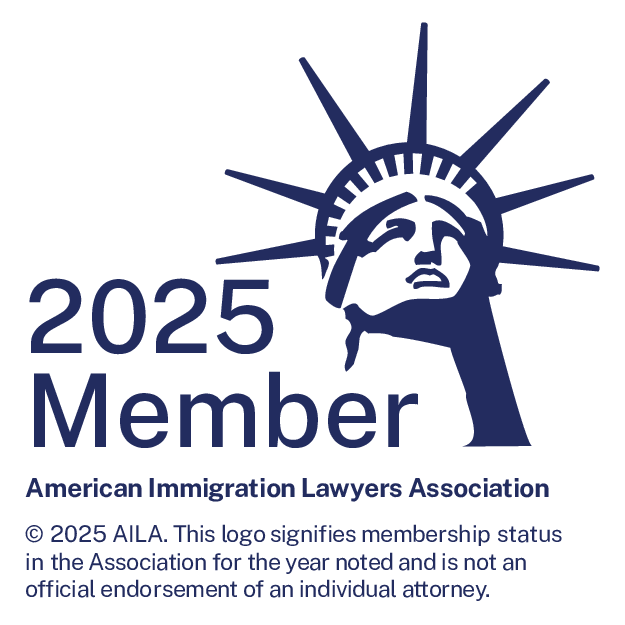Permanent Residency Based on Labor Certification (PERM)
Employment-Based Immigration
The Immigration and Nationality Act established five employment-based immigrant visa categories, referred to as “preferences.” Of these preferences, the first three are the most commonly used for employment-based immigration, as the last two categories are reserved for special immigrant and employment-creation visas. Congress allocates a total of 140,000 visas per year to all categories. Of this number 120,000 visas are allocated to the first three preferences in equal percentages.
Generally speaking, the first three employment-based immigration categories require either a showing that a foreign national is one of the best in his or her field or that a process to test the U.S. labor market, known as “labor certification,” failed to locate a qualified and available U.S. worker for a particular job. Most employment-based immigration cases require labor certification.
Labor Certification and Permanent Residency
When permanent residency is based upon labor certification, the process is a three-step procedure: 1) labor certification, 2) immigrant visa petition, and 3) adjustment of status to permanent resident, or consular processing if the foreign national employee beneficiary is abroad. Since the basis of this type of immigration is a job offer, the employer is the applicant/petitioner in the first two steps of the process. The foreign national worker files the last step, the permanent residency or consular processing application.
Labor Certification. The labor certification procedure tests the labor market to determine whether ready, willing and able U.S. workers are available to fill a particular position. The procedure ensures that the employment of a foreign national worker will not adversely affect the wages and working conditions of similarly employed U.S. workers. Accordingly, employers must offer prevailing wages for the labor certification position. If the labor certification process locates a qualified, available American worker, the Federal Department of Labor (DOL) will not compel the employer to hire that worker, as the process is intended only as a test, but the foreign national employee may not proceed with immigration. A new labor certification application may, however, be filed at a later time.
The principal distinction between the labor certification procedure and the normal hiring practices of most employers is the DOL requirement for minimum job qualifications. Most employers do not establish minimum job requirements, or do so only in vague terms for purposes of flexibility and for the ability to choose the most qualified person for the job. Contrary to such “real world” hiring practices, the DOL considers U.S. applicants who meet minimum job requirements or who may meet requirements through a reasonable period of on-the-job training, as qualified. Therefore, for labor certification purposes, it is essential to define the threshold above which the employer is actually willing to hire an applicant. That threshold will constitute actual minimum job qualifications.
Labor certification applications may be electronically filed at the National Processing Center (NPC) in Atlanta and are processed under PERM (Program Electronic Review Management) regulations. While PERM procedures have generally cut down on processing times, the DOL may still take several months to complete its review and issue a decision on the application. Since processing delays can, and do, occur, it is important to know that it is the labor certification filing date that determines the priority date for visa availability purposes in the immigration matters that follow labor certification.
As of July 2007, PERM regulations require employers to exclusively bear the fees, including legal fees, and costs associated with the labor certification process. The process includes undertaking a pre-filing recruitment campaign to test the labor market for the availability of qualified, able and willing workers. The recruitment must occur within time parameters established by the DOL. Print-media advertisements are an important component of PERM recruitment. Employers must place two Sunday advertisements in newspapers of general circulation in the area of intended employment, or in a professional journal in lieu of one of the Sunday ads where occupationally appropriate. Ads must identify the employer as well as the job location, provide enough information about the vacant position to inform U.S. workers of the job opportunity, and must direct applicants to submit resumes to the employer. Ads need not list the wage or provide a detailed job description or job requirements. The DOL requires employers to use customary in-house practices for vacancy notifications, to post the DOL mandated job notice and to place a thirty-day job order with the State Workforce Agency (SWA). In addition to the foregoing recruitment, if the job for which labor certification is sought is a professional position (one for which a bachelor’s or higher degree is necessary for job performance) then the DOL requires three additional forms of recruitment from a list of specified recruitment options.
Under PERM rules, the wage offer in the labor certification application must equal or exceed the wage determined by the SWA to be the prevailing wage for the occupation in the area of intended employment. Although that wage need not necessarily be paid while the labor certification application or subsequent immigration matters are in process, it will have to be paid when permanent residency is approved.
In most cases, the PERM procedure will function without direct oversight by a DOL official, but the agency may audit labor certification applications for cause or randomly for quality control purposes. Where an application is selected for audit, the Certifying Officer (CO) may question the application; request documents related to the recruitment and may require additional recruitment supervised by the DOL before making a decision. Even after the DOL approves an application it may subsequently revoke certification, if the CO determines that approval was inappropriate. Certification may also be invalidated by the Department of Homeland Security (DHS), the Department of State (DOS), or by a court on grounds of fraud or willful misrepresentation of a material fact.
Our office provides complete service in processing labor certification cases. This includes working closely with the employer and the foreign national employee in drafting the application, in obtaining the prevailing wage determination, in devising a recruitment campaign, placing advertisements and job orders, securing tearsheets, preparing recruitment guidelines, drafting support documents including job notices and a summary of recruitment results, tracking the application through the review process, responding to notices issued by the DOL, and interfacing with DOL personnel through completion of the case.
It is the employer’s responsibility to provide our office with current immigration information about the foreign national employee, including non-immigrant visa documentation; to provide information about the job; to promptly review the drafts we prepare; to comply with instructions on posting and printing documents; to initially review and evaluate resumes that the employer may receive in response to the labor certification advertisements; to promptly interview applicants who warrant an interview; and to timely return documents to our office as instructed.
It is the foreign national employee’s duty to complete the questionnaire we provide at the onset of the case; to provide information and documentation relating to job qualifications, such as education and experience; and to provide us with copies of passports and documents relating to prior immigration history.
Immigrant Visa Petition. Once the labor certification application is approved by the DOL, the employer may file a petition for an immigrant visa with the U.S. Citizenship & Immigration Service (USCIS) on behalf of the foreign national employee. At this stage of the process three issues have to be proven: 1) that the employer continues to offer the job opportunity described in the labor certification application; 2) that the employer has the financial ability to pay the prevailing wage as documented by tax returns or audited financial statements; and 3) that the foreign national meets the job qualifications stated in the labor certification application. USCIS processing times for such petitions vary according to caseload, staffing, budgeting and other variables existing at a particular point in time.
Our office, with the employer’s approval, prepares and files the petition and the necessary support documents, responds to USCIS requests for evidence, if any, and tracks the case with USCIS personnel. It is the employer’s responsibility to provide company tax/financial information and to return signed documents in a timely manner. It is the employee’s duty to promptly secure and forward to our office documents confirming job qualifications.
Permanent Residency Application/Consular Processing. This is the last step in the employment-based immigration process. In order to proceed with this step, an immigrant visa number must be available in the visa category in which the labor certification job is classified. If the foreign national employee is in the U.S. and expects to adjust status without leaving the U.S., he or she will file a permanent residency application. At this time, it is possible to concurrently file this application with the employer’s immigrant visa petition and most adjustment of status permanent residency applications are processed and approved by the USCIS without an in-person interview.
While in labor certification-based permanent residency cases the sponsoring employer and the beneficiary foreign national employee must have a mutual employment intention throughout the immigration process and after the USCIS approves the permanent residency application, the American Competitiveness of the 21st Century Act, (AC-21) permits foreign national employees to change employers without affecting a pending employment-based immigration case under certain circumstances. Under AC-21 a foreign national may “port” or transfer to another employer and/or another job location, if the USCIS has approved the immigrant visa petition, 180 days have elapsed since filing the permanent residency application and the application remains unadjudicated, and the job to which s/he ports is in the same job classification as the labor certification job).
If the foreign national employee is or expects to be outside the U.S. when the USCIS approves the employer’s immigrant visa petition, he or she will complete the immigration process at the American consulate in his or her home country. In such cases, the employer’s immigrant visa petition is filed to reflect the consulate that will complete the immigration process. Upon approving the immigrant visa, the USCIS notifies the National Visa Center, which agency coordinates further processing with the relevant American consulate. All consular processing cases require an in-person interview. Foreign national employees who opt for consular processing are not eligible for the porting benefit under AC-21.
Issues to prove at this stage of the immigration process include 1) the employer’s continued job offer and 2) the foreign national’s admissibility to the U.S. As with the immigrant visa petition, processing times depend on the USCIS agency conditions or on the practices and procedures of the relevant American consulate.
Our office works with the foreign national employee in preparing and filing all paperwork relevant to the adjustment or consular process. We track the case with the USCIS, National Visa Center and/or American Consulate while it is pending. We advise the foreign national worker on fingerprinting procedures and timetable and prepare him or her for a personal interview in those cases that require one.
The employer’s responsibility is to provide job offer letters, based on our sample. It is the foreign national’s duty to provide accurate personal biographic information, copies of visa and/or other immigration documents, copies of personal documents such as birth and marriage certificates (with English translations where necessary) and tax returns, to promptly provide sealed medical examination results, and to comply with the fingerprinting requirement.
Conclusion
Our office is well experienced in processing employment-based immigration cases and we are proud of an enviable success rate. MJB Immigration was established in 2000 by attorneys who had worked together for many years in one of the largest immigration law firms in the Midwest. The two most senior attorneys formed the firm with the vision to serve clients’ immigration needs in a professional and prompt manner. With over forty years combined experience in Immigration Law, our legal team has the knowledge, expertise, and hands-on ability to provide clients with quality, cost-effective representation.
We are committed to providing outstanding service. We work with and remain accessible to employers and employees throughout the time that it takes to complete such cases. We take pride in a job well done.



